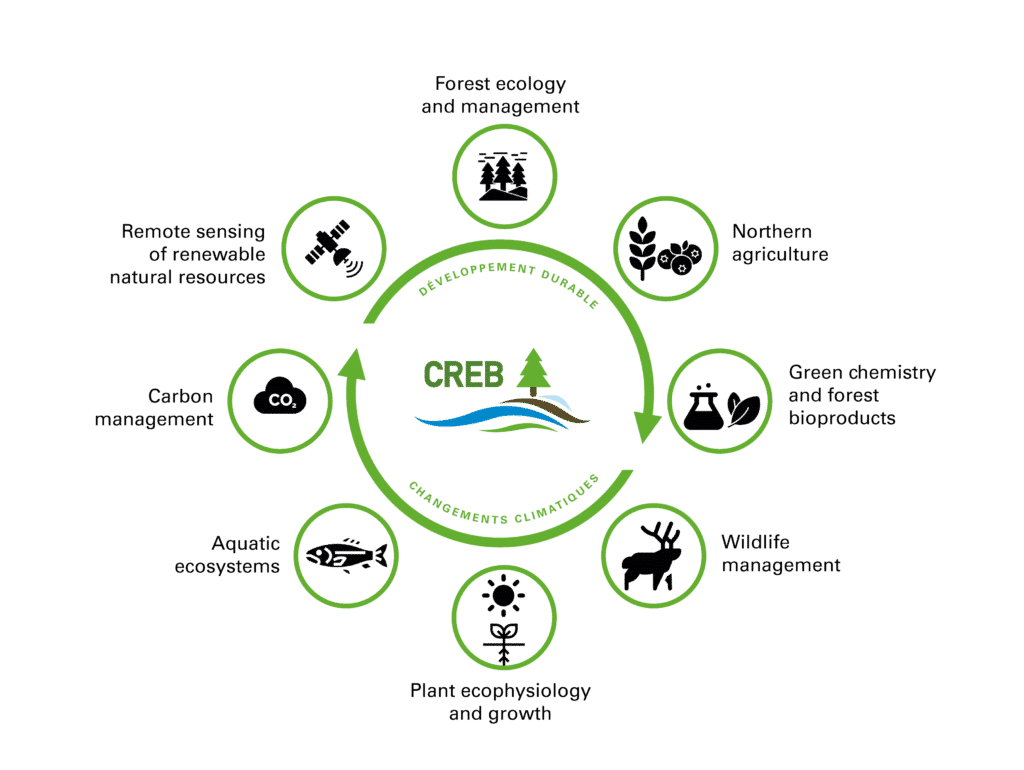

In Canada, the boreal forest covers an area of nearly 3 million km². This ecosystem plays a crucial role in conserving biodiversity and mitigating climate change. These forests are also essential to the Québécois and Canadian economies, especially for resource-dependent regions such as Saguenay-Lac-St-Jean.
The Boreal Research Centre combines expertise related to the natural processes and productivity of the boreal forest ecosystem and the valorization of boreal resources.